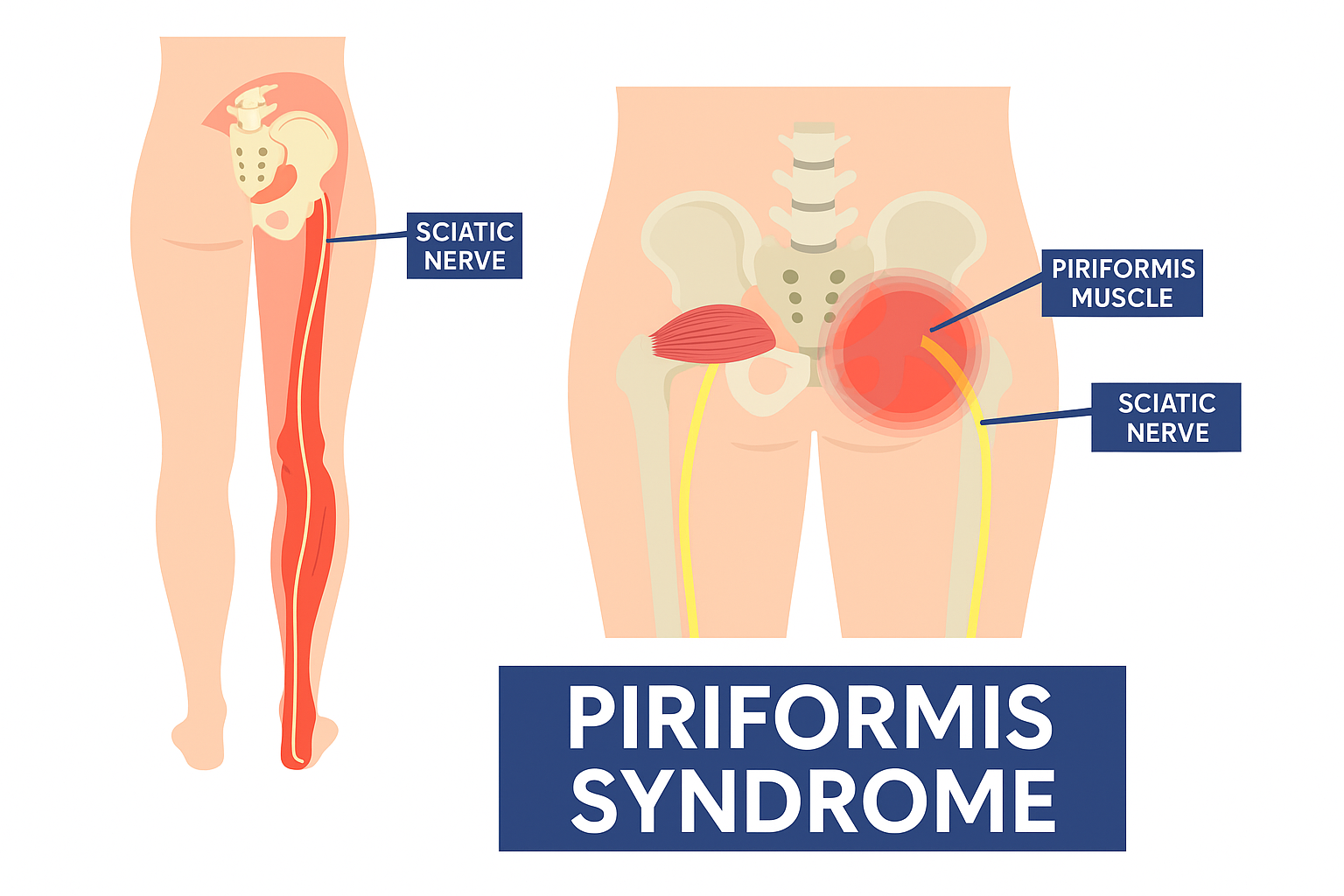Piriformis Syndrome
Sciatica-like Pain Caused by a Tight or Irritated Piriformis Muscle
Overview
Piriformis syndrome occurs when the piriformis muscle, located deep in the buttock, compresses or irritates the nearby sciatic nerve. This can lead to pain, tingling, or numbness that radiates down the leg—similar to sciatica. Unlike spinal causes of leg pain, piriformis syndrome stems from muscular dysfunction and is often related to posture, trauma, or overuse.

Common Symptoms
- Deep buttock pain on one side, especially when sitting
- Pain that radiates down the back of the leg (sciatica-like)
- Discomfort with walking, climbing stairs, or standing after sitting
- Tenderness over the piriformis muscle
- Worsening pain with hip rotation or crossing legs
Conditions We Treat
- Muscle tightness or imbalance in the pelvis or hips
- Prolonged sitting or poor posture
- Overuse from repetitive motion (e.g., long-distance running, heavy lifting)
- Work-related strain, especially involving twisting or lifting
- Auto accidents that cause pelvic trauma or sudden muscle tension
- Prior surgery or altered gait mechanics
How We Can Help
At Restore Spine and Pain, we differentiate piriformis syndrome from spinal causes of sciatic pain using detailed examination and, when needed, diagnostic injections. We focus on relaxing the muscle, relieving pressure on the sciatic nerve, and restoring normal movement patterns.
Treatment Options Offered
- Physical therapy focused on stretching, posture correction, and hip mobility
- Manual therapy and home exercise programs
- Non-opioid medications to reduce inflammation and muscle spasm
- Image-guided piriformis muscle injections with local anesthetic and/or corticosteroids
- Botulinum toxin (Botox) injections to reduce chronic muscle tension in select cases
- Peripheral nerve stimulation (PNS) for persistent or treatment-resistant sciatic-type pain
Schedule a Consultation
If you're experiencing deep buttock pain or sciatic-like symptoms that haven’t responded to standard back treatments, piriformis syndrome may be the cause. Our team at Restore Spine and Pain offers personalized, non-surgical solutions to help relieve your symptoms and restore your activity. Contact us today to schedule a consultation

